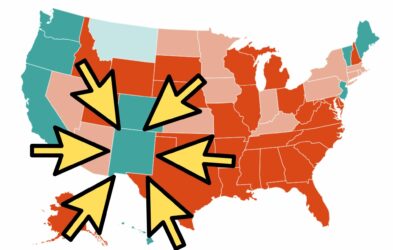This is our executive director Peg Sandeen’s testimony to the Maine Committee on Health and Human Services in support of LD 1313, Maine Death with Dignity Act.
*
Video Recording of the Testimony
* short version
Testimony Transcript
* long version
My name is Peg Sandeen, and I am pleased to provide my testimony in support of LD 1313 to the Maine Health and Human Services Committee today.
I am here as an Oregonian, sharing our experiences in Oregon after having successfully implemented a death with dignity law for over 20 years. I am the Executive Director of Death with Dignity National Center and a social worker, and I have spent my entire career either working with people who are dying or helping states like Maine adopt legislation similar to Oregon’s Death with Dignity Act.
You are going to hear a lot about Oregon today, but I live there, and I do this work every day. I’m here to give you the straightforward story about the Oregon Death with Dignity Act and the people who use it, and to answer any questions you may have.
The law we are talking about today is all about autonomy and dignity; it offers a small number of individuals, adults who are terminally ill, an additional medical option at the end of their lives. It alleviates needless suffering among these individuals.
Our Executive Director, Peg Sandeen, on #Maine #DeathwithDignity Act: “[the bill] is all about autonomy and dignity; it offers a small number of individuals, adults who are terminally ill, an additional medical option at the end of their lives.” #aidindying #AGoodDeathforME
— Death with Dignity (@DeathwDignity) April 10, 2019
The typical Oregonian who uses the law is a 73-year old man or woman with an advanced cancer diagnosis. She or he is enrolled in hospice care and has insurance coverage.
Because of the safeguards built into the law, she has been evaluated by two physicians to determine her competence to make healthcare decisions, and both physicians have told her that her prognosis is grim—she will not live longer than six months. She has gone through two waiting periods and has made three requests for the medication.
This typical patient will inform her family of her decision and bring her family together for a final celebration. Death with dignity, for her, will be life-affirming.
Going through the process of qualifying has been arduous, but she finds that her life can be more focused on the things important to her—her family, her quest for life’s meaning, those few things she has left to enjoy—and less focused on things like physician appointments and tests and chemotherapy. She is not suicidal, nor is she suffering from depression. She is dying. She would much prefer to live, but that choice is no longer available to her because of her illness.
Her insurance company has not denied her care, and no person has urged her or coerced her into using the law. Her physicians have painstakingly explained her end-of-life care options, and she understands the ramifications of her decision to use Death with Dignity. She is resolute in her decision-making. She is independent, and she has made all of her own decisions her entire adult life. Neither her children, nor her friends, are surprised at her decision; in fact, it seems totally in line with her character.
She does not fill the prescription until she decides affirmatively to take the medication. She knows that it is expensive, and she has already qualified to receive it. There is a well-documented process for getting the prescription from her pharmacy, so she is not worried about those details.
She has chosen to hasten her death because she has lost her autonomy. The cancer has robbed her of her ability to engage in activities that made life enjoyable; she no longer has her dignity. She is lovely, and articulate, and informed and gravely ill.
This woman is a composite of the people I know who have used the law and the data reported by the Oregon Health Authority.
Today, you are going to hear a lot of accusations about what this bill does and does not do, and I encourage you to think about this woman.While she is not real, everything I’ve shared about her and what happens in Oregon is real.
Death with Dignity ED Peg Sandeen speaking in support of #Maine #DeathwithDignity Act: "…the stringent safeguards [in the #Oregon law] have worked for 21 years in protecting vulnerable, terminally ill Oregonians. It alleviates needless suffering among these individuals."
— Death with Dignity (@DeathwDignity) April 10, 2019
We do not allow targeting of vulnerable individuals, the poor, those with disabilities, the elderly, through death with dignity, nor do we allow insurance companies to decline expensive treatments in exchange for covering prescriptions to hasten death. There is absolutely no proof this has ever happened.
We spell out all the penalties for coercion, and we haven’t had to use them—ever—because all of the stringent safeguards have worked for 21 years in protecting vulnerable, terminally ill Oregonians. For more than two decades now, we have heard these same slippery slope arguments that you will hear today. These scare tactic arguments do not change over time.
Oregon has been named one of the best places in the country for palliative care and end-of-life care.We have some of the highest rates of hospice use in the country.
Truth is, Maine has an exceptional system, too, and enacting this law would provide one more option for individuals at the end of their lives. Please do not let suspicious-sounding, undocumented, and unfounded accusations about my state dissuade your intention to improve the quality of dying for people in Maine.

No comments.